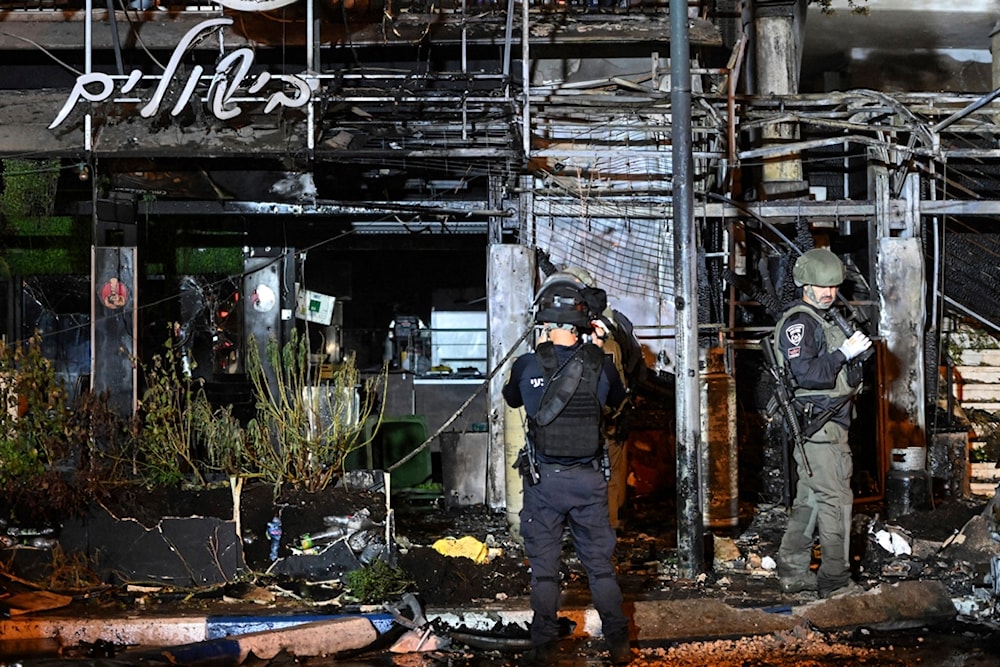Northern Israeli settlements are 'ghost towns' with Hezbollah presence
A state of fear, according to Israeli media, rules Israeli settlements bordering South Lebanon and those at a relatively short distance due to the escalation on the northern front with Hezbollah.
-

Israeli police investigate the scene of a rocket attack from Lebanon targeting the "Kiryat Shmona" settlement, in northern occupied Palestine, Thursday, November 2, 2023. (AP)
Israeli media reported a state of fear and panic prevailing in the northern settlements, close to the Lebanese border, as the area has become devoid of settlers and resembles a “ghost town,” in light of the escalation of the confrontations between the Israeli occupation and Hezbollah.
The Israeli Channel 13 correspondent in the North stated, "All of Upper Galilee has become empty, which Hezbollah presents this as an achievement," stressing that "the region is empty, like a ghost zone."
#WATCH | The location where one of the rockets fired from #Lebanon fell in the "Kiryat Shmona" settlement, north of occupied #Palestine. pic.twitter.com/nIUdYPy87i
— Al Mayadeen English (@MayadeenEnglish) November 5, 2023
The correspondent explained that the distance between Hezbollah and the residential area in the settlement of "Kiryat Shmona" and the settlements adjacent to them are "much closer than that which separates the settlements in the south from members of the Hamas movement [in the Gaza Strip]."
Moreover, the Israeli coorespondent said, "You feel that they [Hezbollah] are in your backyard, and this is very difficult," stressing "I do not know how the settlers will return here, while there are many questions to which there are no answers."
Return of Bireh, 'Kiryat Shmona' settlers critical for Zionism: Lapid
Former Israeli Prime Minister Yair Lapid said, in an interview for Israeli Channel 12, that Zionism is set to collapse unless Bireh, "Kiryat Shmona" Israelis return to their settlements.
He emphasized that "Israel's" ultimate goal is the return of these settlers, but it won't happen all at once. Lapid also acknowledged the challenge of managing a two-front war and the possibility of the West Bank becoming a third front if tensions escalate.
Lapid stated that the timing, from the US perspective, is flexible, and he believes that "Israel" still has time to act.
Read more: Hezbollah's dual threat to 'Israel'; massive firepower, Radwan Force
Elsewhere in his remarks, he stressed the need for "Israel" to develop a clear strategy, something he believes has yet to be done. According to him, a fundamental aspect of this strategy is ensuring that settlers on the northern and southern frontlines can return to their settlements with a sense of safety.
He also pointed out that achieving this goal involves keeping Hezbollah away from the northern border, preventing the Resistance group from launching anti-tank missiles.
Lapid acknowledged that recent developments have led to a situation where "Israel" is dealing with wars on multiple fronts, including the Syrian border and operations from Yemen, which he described as a challenging and unstable security environment.
Read more: Hezbollah anti-ship missiles increase threats to US warships: Reuters

 3 Min Read
3 Min Read










